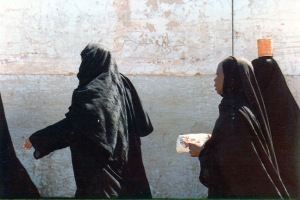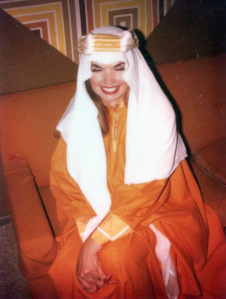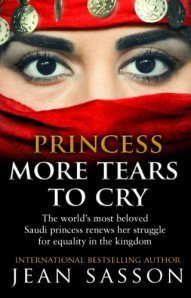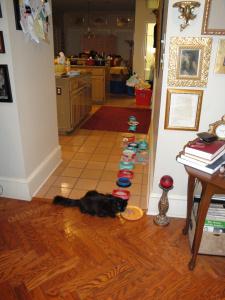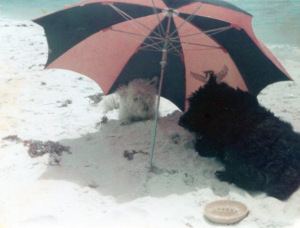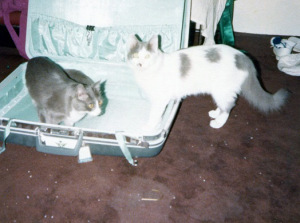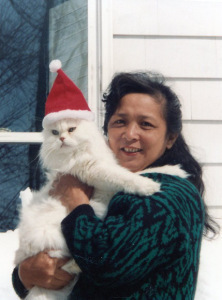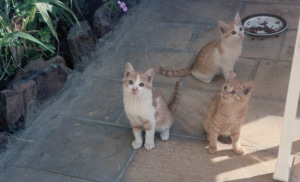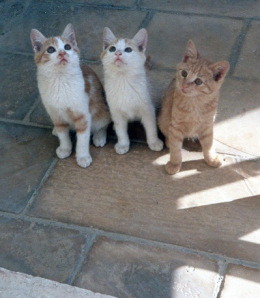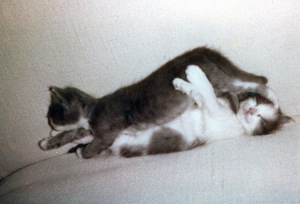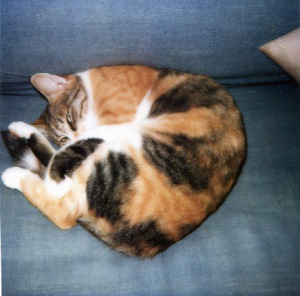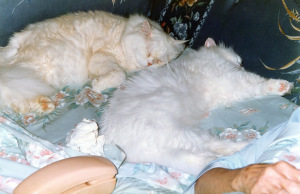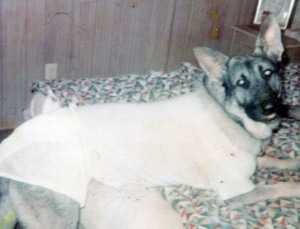Jean Sasson's Blog, page 3
September 22, 2014
Do you think Saudi females should always have a guardian?
This is an interesting blog that I am reblogging from Saudi woman’s Blog. It’s a blog that will make you think and create a lot of conversation. This is a topic that Princess Sultana and I bring into clarity in the latest in the series of books about her life: Princess, More tears to Cry: Here’s the book images (UK and USA publishers)
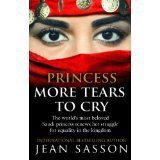
UK edition of the latest about Saudi women through the voice of Princess Sultana
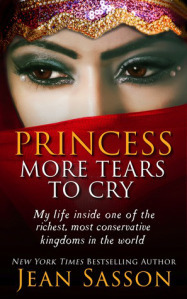
USA EDITION of my latest book about Saudi women
I’d love to hear from readers about this topic: (NOTE: This is not my blog, this blog is from the Saudiwoman’s blog, so I am giving her full credit.)
“My Guardian Knows What’s Best for Me”
In August a campaign was launched titled “My Guardian Knows What’s Best for Me”. The aim of the campaign is to stand against women who are demanding to be treated as adults. Yes you read it right, a campaign that demands that the status qou remains as is. The campaign is headed by two princesses and has two rivaling websites. And since it has gotten a lot of attention and some rumors that the two princesses were fighting over whose idea it was, the “Who are we” page has been taken down on one of them. The goal of the campaign is to gather one million signatures from Saudi women who support it. On the bottom of the main page of the weaker website is a button that says click to vote and when you click it, it automatically counts as a vote of support! The other website’s button actually asks for specifics like name and city. The stronger website is here and the weaker one here.
Below I’ve translated Dr. Elham Manea’s piece on the how and why of this campaign:
I swear I almost smiled, but how could I smile?
Then I said to myself, that people are people, in their wisdom or weakness, here or there, no difference.
So I contemplated rather than smile.
Some Saudi women have decided to express themselves.
They wanted to take a stand against human rights activists calling for Saudi Arabia to give women some (not all) of the rights that are enjoyed by their Arab counterparts in neighboring countries. So they came out with a new campaign titled “My Guardian Knows What’s Best for Me”.
Do we blame them? All they wanted was to fix a problem they know nothing of, and thus made it worse. It would be strange to expect anything else from them. You cannot miss what you’ve never had.
Most of them belong to the Saudi aristocrats. Their leader is a princess. Their hands are velvet. They live in palaces and villas. How could we blame them for not knowing the reality of average Saudi women?
These campaigner are only worried about Saudi women. They are protecting women from themselves.They are protecting us from activists, activists who have lived the reality of being a Saudi woman in the East, West, North and South of Saudi Arabia. They know how we suffer, and how we are subjected to humiliation on a daily basis. Luckily, these activists are not princesses.
These activists believe we should be treated as adults and humans and not as children and minors, and not as digraces to be covered. Activists who are tired of this reality of suffering and daily humiliation and so they call for the guardian system to be absolved.
These campaigners who stand againsts activists see nothing strange in the fact that we are the only Muslim country that bans women driving. Isn’t it funny that Saudi Arabia is unique in this odd religious aspect? But it has always been so. They don’t wonder as to how a woman’s freedom in our country has been choked and strangled a thousand times over,so that the poor soul cannot make a move without a male’s permission, a male who’s only distinction is his genitals. To the degree that we see nothing weird about a twenty year old being reprimanded by her ten year old brother.
My guardian knows what’s best for me, seriously?!
They do not see anything strange in that the women of their country cannot make the smallest move without their guardian’s permission. They have no right to leave their houses, to study, to go to a clinic…without their guardian’s permission. And the guardian is a woman’s father, brother or any related male until she marries. And then her guardian becomes her husband until either one of them dies. Her guardian may marry her off at ten, hit her, abuse her or may be kind to her, it’s all up to luck. Her life like a watermelon, it might open up to be red and sweet or bitter and rotten.
These campaigners live like princesses and the restrictions that stifle average women daily, do not apply to them. Have they ever faced a PVPV commission member who stole their very breath. If a PVPV commission member even set his eyes on them, he would shake from fear, because the only power that the PVPV recognize is the power of your guardian. These men know nothing of religion.
My guardian knows what’s best for me, seriously?!
They never wonder and they never question. Instead in a naiveness that is to be envied, naiveness reminiscent of Marie Antoinette, they are bothered by the demands of the women who have suffered. And so they send to the king, asking him that this system of injustice be maintained.
They say “Who said we need to be human?”
“We do not want rights that contradict our customs!”
“Stop their demands!”
“Cut their tongues!”
“Silence their voices!”
“Leave us as we are!”
“An object in a degree closer to the animal! (With all due respect to animals)”
And surprisingly, I am not surprised. Not surprised by the campaign.
And you know why?
Because the history of movements demanding women’s rights throughout the world, was full of similar campaigns to this “My guardian knows what’s best for me”. For every woman who demanded her rights, stood more women who cursed her, in the name of tradition, in the name of customs, in the name of religion (whatever that religion may be), and shamed her for seeking change.
This campaign is not strange.
It is similar to another campaign carried out by women in Switzerland in the twenties and then again in the fifties and sixties against women’s right to vote. They too used religion, customs and traditions as an excuse to stop development.
Even in this, they are not unique.
People, as I said before are people,in their wisdom, and strength and in their weakness and simplicity.
Here or there. No difference.
But my guardian does not know what’s best for me.
I am worthy of making my own decisions.
And only I know what’s best for me, even as I bow my head in respect to my father.
Those campaigners insist on staying minors.
That is their decision. But who said that they speak on behalf of Saudi women?
FROM JEAN SASSON: I couldn’t have said it better!


September 8, 2014
FEMALE FIRST interview with Jean Sasson
by Lucy Walton | 8 September 2014

Jean Sasson
From writing Princess More Tears to Cry I can tell you that Saudi women are changing their world and that Princess Sultana is bringing their victories public. Women are driving openly and taking their chances with the mean-spirited clerics, who like nothing better than to harass women. But the big surprise is that the women of Saudi Arabia have a friend who is sitting on a throne, and the person on the throne is the very forceful king of Saudi Arabia. Thus far, he has freed all the women who were imprisoned for driving and sentenced to floggings by the religious courts. This is big news in their world and it is making women bolder than ever. But all is not perfect because there are many powerful men in Saudi Arabia and some of these men do everything in their power to keep women in purdah. So, even as we celebrate the happy stories, there are sad tales that will bring tears into the eyes of all but the most hardened.
This is the long awaited follow up to Life of Saudi Princess Sultana, so what you can tell us about this book?
I can tell you that Princess Sultana used to be the lone voice of women pushing for freedom, but now we learn that other women are gathering their courage and pushing back. There are many new heroines to celebrate in Saudi Arabia, and you will learn about 10 of those women in this book. Additionally, the many millions of readers who have fallen in love with Princess Sultana and her family will enjoy the heart-warming stories that centre around her three children, her three grandchildren, as well as other members of her family. So there is something for everyone in this, the 4th book in the series about Princess Sultana.
Please tell us about the process of gathering all the personal stories for this book.
This research and interviewing process was so very different from the past three books about the princess. Close your eyes and try to imagine a palace filled with women and children who all want to tell a writer something interesting that is happening in their country, one of the wealthiest nations in the world, yet, one of the most backward when it comes to the treatment of girls and women. It was in such a setting where I was told about the stories Princess Sultana wanted included in Princess, More Tears to Cry. Some of the stories came from the princess' daughters, while others came from the princess. Honestly, it was a very noisy environment for a writer. I needed a quiet time to process facts, but that was not to be. Finally I found the secret to shutting out all the noise to hear only the person sitting in front of me. I focused my eyes on that person's face and soon I could only hear that one important voice. But I will admit that I missed the old days when everything was so secretive and the princess and I were slipping around like spies from the cold war to get the information clear for me so that I could return to my home office, and carefully write books from the facts I had been given. While it is more fun now that the secret is out in her own family, it is quite the challenge for this writer!
This is your twelfth book so how much easier is your writing process with each new book you publish?
Each book I have written carries its own struggle. Therefore book number twelve was no easier or no more difficult than the previous eleven.
Please can you tell us about when you first met Princess Sultana.
I met the princess for the first time in 1985 at the Italian Embassy in Saudi Arabia. She was the only female royal I had ever seen at a western function so that fact alone caught my attention.
Everything of life was exciting then, because I was living in one of the most exotic kingdoms in the world. I had met other royal princesses when attending royal weddings, but nearly all the Saudi women I had come to know appeared quite shallow, with their interests centering only on designer gowns, expensive jewels and the latest royal gossip. To meet Sultana was quite the surprise, for she had important things on her mind. Almost instantly she began talking about the undesirable social issues affecting her country that had been plaguing my own mind for the past seven years since I first arrived in the kingdom. She talked. I listened. Our eyes locked and something told me she would be an important person in my future. She told me later that she felt the same. She invited me to visit her in her palace. Our friendship grew slowly, but within a year I was going with her on holidays to France where we truly bonded, mainly because we are both so passionate about the horrible ills affecting so many women of the world.
Why was it important to you to share personal stories of middle Eastern women for your career?
They became my subjects; I became their hope. I was living in the Middle East during a very important time for women in the region. And, don't forget, in the early days most Saudis were open minded about westerners and wanted to get to know us. Therefore, I had access to many women, while most journalists had none. After all, in those days, most journalists were men, and no man would ever allowed in the circle of women. I believed, and still believe, that it is important for the world to know about the stories of women from the Middle East. In fact, I would have told these stories even if there was no indication they would be bestsellers.
What have been the most surprising things you have found when writing your books?
The commonality of the rich and the poor -- all women, east and west, press against an invisible force trying to deny them freedom and subject them to the rules of men.
What is next for you?
I have five books on the drawing board. And so I will continue to write books that awaken others, so that I can pass the passion to create change to a new generation. To my mind, nothing is more important, because unless I am a walking miracle, I won't live forever, and this is a struggle that is far from won.
by Lucy Walton for www.femalefirst.co.uk
find me on and follow me on
Read more: http://www.femalefirst.co.uk/books/je...
http://www.femalefirst.co.uk/books/je...
FEMALE FIRST INTERVIEWS JEAN SASSON about PRINCESS, MORE TEARS TO CRY
Exclusive interview with International Bestselling author Jean Sasson 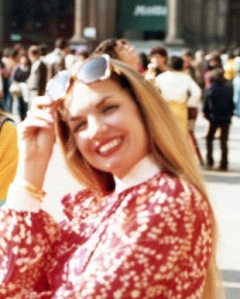
From writing Princess More Tears to Cry I can tell you that Saudi women are changing their world and that Princess Sultana is bringing their victories public. Women are driving openly and taking their chances with the mean-spirited clerics, who like nothing better than to harass women. But the big surprise is that the women of Saudi Arabia have a friend who is sitting on a throne, and the person on the throne is the very forceful king of Saudi Arabia. Thus far, he has freed all the women who were imprisoned for driving and sentenced to floggings by the religious courts. This is big news in their world and it is making women bolder than ever. But all is not perfect because there are many powerful men in Saudi Arabia and some of these men do everything in their power to keep women in purdah. So, even as we celebrate the happy stories, there are sad tales that will bring tears into the eyes of all but the most hardened.
This is the long awaited follow up to Life of Saudi Princess Sultana, so what you can tell us about this book?
I can tell you that Princess Sultana used to be the lone voice of women pushing for freedom, but now we learn that other women are gathering their courage and pushing back. There are many new heroines to celebrate in Saudi Arabia, and you will learn about 10 of those women in this book. Additionally, the many millions of readers who have fallen in love with Princess Sultana and her family will enjoy the heart-warming stories that centre around her three children, her three grandchildren, as well as other members of her family. So there is something for everyone in this, the 4th book in the series about Princess Sultana.
Please tell us about the process of gathering all the personal stories for this book.
This research and interviewing process was so very different from the past three books about the princess. Close your eyes and try to imagine a palace filled with women and children who all want to tell a writer something interesting that is happening in their country, one of the wealthiest nations in the world, yet, one of the most backward when it comes to the treatment of girls and women. It was in such a setting where I was told about the stories Princess Sultana wanted included in Princess, More Tears to Cry. Some of the stories came from the princess’ daughters, while others came from the princess. Honestly, it was a very noisy environment for a writer. I needed a quiet time to process facts, but that was not to be. Finally I found the secret to shutting out all the noise to hear only the person sitting in front of me. I focused my eyes on that person’s face and soon I could only hear that one important voice. But I will admit that I missed the old days when everything was so secretive and the princess and I were slipping around like spies from the cold war to get the information clear for me so that I could return to my home office, and carefully write books from the facts I had been given. While it is more fun now that the secret is out in her own family, it is quite the challenge for this writer!
This is your twelfth book so how much easier is your writing process with each new book you publish?
Each book I have written carries its own struggle. Therefore book number twelve was no easier or no more difficult than the previous eleven.
Please can you tell us about when you first met Princess Sultana.
I met the princess for the first time in 1985 at the Italian Embassy in Saudi Arabia. She was the only female royal I had ever seen at a western function so that fact alone caught my attention.
Everything of life was exciting then, because I was living in one of the most exotic kingdoms in the world. I had met other royal princesses when attending royal weddings, but nearly all the Saudi women I had come to know appeared quite shallow, with their interests centering only on designer gowns, expensive jewels and the latest royal gossip. To meet Sultana was quite the surprise, for she had important things on her mind. Almost instantly she began talking about the undesirable social issues affecting her country that had been plaguing my own mind for the past seven years since I first arrived in the kingdom. She talked. I listened. Our eyes locked and something told me she would be an important person in my future. She told me later that she felt the same. She invited me to visit her in her palace. Our friendship grew slowly, but within a year I was going with her on holidays to France where we truly bonded, mainly because we are both so passionate about the horrible ills affecting so many women of the world.
Why was it important to you to share personal stories of middle Eastern women for your career?
They became my subjects; I became their hope. I was living in the Middle East during a very important time for women in the region. And, don’t forget, in the early days most Saudis were open minded about westerners and wanted to get to know us. Therefore, I had access to many women, while most journalists had none. After all, in those days, most journalists were men, and no man would ever allowed in the circle of women. I believed, and still believe, that it is important for the world to know about the stories of women from the Middle East. In fact, I would have told these stories even if there was no indication they would be bestsellers.
What have been the most surprising things you have found when writing your books?
The commonality of the rich and the poor — all women, east and west, press against an invisible force trying to deny them freedom and subject them to the rules of men.
What is next for you?
I have five books on the drawing board. And so I will continue to write books that awaken others, so that I can pass the passion to create change to a new generation. To my mind, nothing is more important, because unless I am a walking miracle, I won’t live forever, and this is a struggle that is far from won.
by Lucy Walton for http://www.femalefirst.co.uk
find me on and follow me
Read more: http://www.femalefirst.co.uk/books/jean-sasson-princess-more-tears-to-cry-532935.html#ixzz3Ck0sWbzR
Read more: http://www.femalefirst.co.uk/books/jean-sasson-princess-more-tears-to-cry-532935.html#ixzz3Ck0kJqnJ


September 7, 2014
CAPTURING THE QUIET MOMENTS… examples of good writing
This is a very nice blog. I recommend it.
 Originally posted on BRIDGET WHELAN writer:
Originally posted on BRIDGET WHELAN writer:
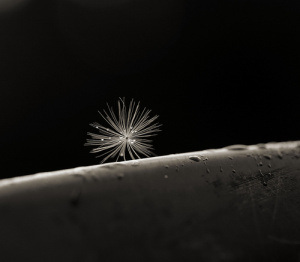 I’ve come across three figures of speech that I like very much and thought I would share because of their gentle, soft quality. It’s easy to be dramatic. It’s much harder to capture the smaller moments
I’ve come across three figures of speech that I like very much and thought I would share because of their gentle, soft quality. It’s easy to be dramatic. It’s much harder to capture the smaller momentsThe first is from the poet Ezra Pound (who I admit isn’t a personal favourite, but I do like this).
And the days are not full enough
And the nights are not full enough
And life slips by like a field mouse
Not shaking the grass
The idea of something NOT happening is arresting, isn’t it? What else might not happen…a hand no longer raised in anger but the fear remains, the light of recognition gone from an elderly relative’s eyes, a key no longer turning in the front door at 7 O’Clock…any of these could be the start of/or part of a poem or a story or a passage of writing that might…
View original 164 more words


September 5, 2014
WHAT MY PETS WANT TO TELL YOU:
WHAT MY PETS WANT TO TELL YOU:
1) Mommy loves our food!
She tastes everything before she feeds it to us. She makes funny faces, but she samples it all, canned dog food, canned cat food, bird seed, and the human food she shares with us. She must love our food better than her own!
Talking about good food! I am Paris: I was a stray before I found mommy. But here I am browsing through my 14 dishes filled with the most tasty kitty and human food. Mommy even buys me shrimps and delicious chicken dishes! When she notices that I love something particular, she makes note and keeps me well supplied. I’m told by other kitties that I won the cat lottery when I found Mommy.
2) Mommy is a fun playmate.
She spends two or three hours of each day playing, or talking a walk. She loves us very much and can’t bear it if we are unhappy.
My name is Champagne. I was miserably stuffed in a small cage in Riyadh, Saudi Arabia and would have soon died if not for a very kind man who knew mommy paid a lot of money to buy my freedom. Mommy made sure from that time on I was never in a cage again. In this picture we have just put up the Christmas decorations. I’ve been playing with a favorite red ribbon that is now hidden underneath my body. I’m pretending as though I don’t have a care in the world because I want to keep this ribbon as my own. But I don’t think Mommy would mind.
My name is Yager and Mommy tells me all the time that I am the most majestic German Shepherd in the whole wide world. Mommy scratches my tummy every day, and I’ve noticed if I get in the hammock that she quickly comes and gives me a good tummy rub. Ah! Life is sweet!
3) Mommy always takes us on holiday.
She says she must because if we are left behind, she worries that we would be sad and frightened. She would never put us in a boarding place. Sometimes she has left us with friends who stay at our home and take good care of us, but those friends love us too.
Our names are Booger (Black Scotty) and Newcombe (White West Highland Terrier). We went on vacation to the beach with Mommy. She sits with us on the white sand until we are ready to return to the hotel to take a nap. She even buys us cool sunglasses.
And here we are, Smokey and Bandit, brother and sister, packing to go on holiday with Mommy.
4) We are allowed to wear costumes for special occasions.
BUT, if we say no thanks, then Mommy tosses those costumes away! So you see, Mommy allows us to make decisions.
Here I am again, Champagne, wearing my special Santa hat. My second mommy is holding me in her arms. This is Mommy Lydia, who loved me just as much as my own mommy and always took really good care of me.
5) Mommy saves a lot of strays.
We are constantly being introduced to new pups or kittens or birds. But that’s all right. The more the merrier!
Here are three kittens who lived with us until they had their own homes and their own mommies. They are really cute and sweet!
6) Mommy buys us our own transportation.
Here we are in Sarasota, Florida riding around in our buggies. Mommy thought that the sidewalk was too hot for our little paws. And, guess what? She was right! We are riding in style!
I’m Chloe, and I’m in my own little shoe bed. Mommy bought it for me.
7) We have a great life. We play and eat and are so loved that when we sleep, we REALLY sleep. No insomnia in our lives! Check us out in what they call DEEP SLEEP MODE! It’s been fun to tell you about our Mommy. We all hope that every animal in the world could be loved just as we are loved. We don’t have to worry about a thing!


September 1, 2014
PRINCESS SULTANA, MORE TEARS TO CRY, an excerpt for readers!
Finally! The 4th book in the PRINCESS series about Princess Sultana has arrived! AND, HERE IS A LITTLE GIFT FOR readers WHO HAVE EXPRESSED THEIR LOVE FOR PRINCESS SULTANA: AN EXCERPT: VISIT WITH PRINCESS SULTANA AND HER FAMILY AT A SPECIAL FAMILY PARTY. HAPPY READING MY FRIENDS! (scroll down) 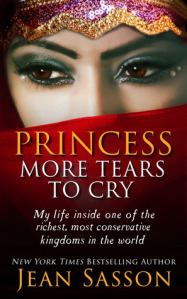
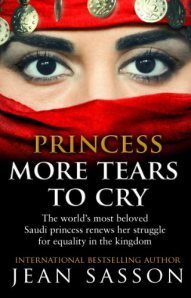

CHAPTER TWO: THE PARTY:
Like a siren song, diamonds call out to most females. I no longer hear that call. I lost my desire for expensive jewelry
the moment I discovered the immense joy one derives from helping others. Now when I am shown exquisite jewels, I do not envisage the glittering gems draped around my neck, hanging from my ears or clasped upon my wrist; instead, I contemplate what the value of those gems could procure. Perhaps it would allow an eager child to take lessons in a good school, or a sickly mother to feel the glow of calm, knowing she will live to return to her children after receiving high-priced medical care.
I was walking into a situation where I would have such an opportunity, as lively voices animating the corridor led me to believe that members of my family were already enjoying the pleasure of an exciting reunion. But I was wrong. Expensive jewelry was the cause of much of the commotion.
As I entered the largest of our sitting rooms, I heard the distinct voices of three of my older sisters. Dismay washed over me when I looked to see my sisters, Tahani, Dunia and Haifa, clustered in a circle breathlessly exclaiming over Dunia’s new looped diamond necklace, which was hanging nearly to her waist.
Sara had described the piece of jewelry to me a few days earlier, but I was startled when I saw that the long-stringed neck- lace could be wrapped round Dunia’s neck three times. Many hundreds of diamonds had been used to make such a substantial piece. It was much larger than I could ever have imagined. I stood staring and assessing that necklace. Each diamond was worth a small fortune. Each diamond could educate a child. Each diamond could support a poor family for a year. The blinding glitter of Dunia’s diamonds held no appeal for me.
Sara had mentioned that our sister had paid many millions of dollars for the necklace. As a woman who only cares for the frivolous things in life, Dunia had devoted many hours to searching for the most extraordinary jewels and seeking to acquire them all.
We did not understand the seriousness of Dunia’s obsession until Sara purchased a special coffee-table book, My Love Affair with Jewelry, as a gift for her. It featured the jewelry collection of the legendary American actress Elizabeth Taylor. From her youth, Sara has always tried to encourage our family to read books, even picture books with few words. She believed that the ‘guided tour’ by Elizabeth Taylor would bring Dunia many hours of pleasure. Actually, the book brought on a bizarre illness that created a crisis.
Dunia became hysterical, a woman without clear thoughts, crying out that she must have the Krupp diamond, a 33.19-carat stone that had been a gift from Taylor’s husband, the actor Richard Burton. Dunia wept for hours over a second diamond, a 69.42-carat stone Burton had also purchased his wife.
Dunia’s physician was summoned. After prescribing sedatives, he ordered a month of total bed rest, with curtains drawn, so that his patient would not think of the world outside her palace and all the jewels that might be had. He called in Dunia’s daughters, telling them that there was to be no discussion of jewels.
To our everlasting amazement, the doctor diagnosed Dunia’s illness as the first known case of ‘the Elizabeth Taylor Jewellery Virus’! While Dunia was recovering, one of her daughters sensibly slipped the jewellery book away; in fact, she burnt it so that her mother would not be tempted to once more suffer envy to the point of infirmity.
Hopefully Dunia had recovered from her Elizabeth Taylor angst now, and she appeared very content with her diamond rope necklace. I overheard her say in a clear voice that was meant to be heard, ‘Do not tell, but this necklace is more costly than the most fabulous pieces Uncle Fahd purchased for Jawhara.’
By Uncle Fahd, Dunia was speaking of King Fahd, who was a half-brother of our father and a favoured uncle we had all loved very much. His death on the first day of August 2005 was a dreadful blow to my immediate family, for that was the day that the hub of Saudi power moved to another unit of our large family.
Our grandfather, King Abdul Aziz, had many wives from vari- ous Saudi tribes and those wives gave him many, many sons – and even more daughters. While all the sons could be considered in line for the throne, only 12 of my grandfather’s sons were serious contenders for the crown.
Jawhara was our Uncle Fahd’s favorite wife and is the mother of his most beloved son, the youngest, Abdul Aziz bin Fahd. In our world, the eldest son is the most important in the eyes of the father and of the community; but the youngest son is generally the most loved. Both positions, first and last, establish a certain favoritism.
Princess Jawhara is a unique woman. Even after our much- loved uncle passed from the earth, Jawhara kept the respect of our family. She was part of the entourage that accompanied her husband’s half-brother and successor, King Abdullah, on trips out of the country. Such a thing rarely happens in Saudi Arabia. Once a husband passes from this life, the women generally retreat into the background, never to be seen or heard from again, other than within the tight confines of their immediate family.
I have always suspected that several of my sisters were jealous of Jawhara’s beauty and of her favoured status. But I always liked her, for a number of reasons, mainly because she came out in public to speak about education for girls long before other women were brave enough to speak out. During those days, even the wife of a king generally remained invisible to the public. But Jawhara used her intelligence to better our land, making a good name for herself and for our country. And, despite her powerful position, I always found her to be a kindly person who did not hold herself higher than all those around her. The Kingdom of Saudi Arabia needs many such women to take us into the future.
Most likely Dunia was one of the sisters most jealous because, as the favoured wife of King Fahd, Jawhara had accumulated enormous wealth. She probably owned more jewels than most of the royal women combined.
I gazed at my sister, a beautiful woman who had wealth, health and the love of her family, yet none of these attributes quenched her thirst to acquire more of everything, particularly jewelry. Dunia is ten years older than me, yet has not learned during all her years of living that expensive baubles do not bring happiness. She has no comprehension of this important truth. I feel sad for my sister, for I fear she will never know true happiness.
At this point, Dunia proudly confided, ‘My sisters, I also participated in the necklace design. The designer claimed that my input made this necklace most unique.’
Just then my attention shifted from Dunia because I saw my brother Ali appear in the doorway. Walking slowly, he leered at one of our maids, a very pretty Indonesian girl named Sabeen, meaning one who follows. Sabeen, who was new to our house- hold, was an innocent girl, happy to be making a nice salary to send home to her parents to pay for the education for her two younger brothers. I reminded myself to warn Sabeen to stay far from Ali’s reach. The dear girl was a lovely addition to our staff and I meant to protect her from all lecherous men. This vow included men in my own family, as my brother and two of his sons were well known for their desire to bed every attractive woman who came into their orbit. I glanced at Sabeen and smiled encouragingly. She was carefully balancing a serving tray loaded with glasses of cold pineapple, apple and cranberry juice.
I sighed deeply and scowled at my brother, who was so preoccupied observing pretty Sabeen that he failed to notice my displeasure. I continued to stare for other reasons. I had not seen Ali in more than a year and was surprised to see large bags drooping under his eyes and hanging jaw jowls swaying as he walked. Even his paunchy stomach jiggled with each step he made. He was a wiggling sight!
My brother is a self-indulgent man and, as such, he has aged more poorly than most. Since he was a teenage boy, Ali has made no effort to restrain his appetite for many vices, including exces- sive eating and smoking. Amani, who is close with one of his daughters, had recently reported that Ali had even begun to drink alcohol to excess.
As one who once told falsehoods and slipped unnoticed to drink prohibited alcohol, I know too well that such noxious liquids are bad for the human body, as well as for our human psychological well-being. I am pleased to say that I have not taken a drop of the forbidden liquid in more than seven years, although I admit it was very hard to break the addictive pattern of turning to alcohol each time I was stressed or depressed by the antics of my children, or angry at my husband.
Suddenly I heard my name and there was ‘Little Sultana’ running in my direction. Ah, joy! My first grandchild – my only granddaughter and namesake – is a celebrated beauty. Her raven black hair reaches to her waist, her olive skin is flawless, and most unique to her appearance are her eyes, as black as midnight. Allah has blessed her with a rare and beautiful look.
While physical beauty is a great gift given to one without any effort on their part, it means little in comparison with the character of a person. I am most gratified because our Little Sultana came to this earth predetermined by God to possess an elevated intelligence, a sunny disposition, a good soul and a generous spirit, one that instantly recognises those less privileged. Even though she was only seven years old at the time, she was mindful to extend kindness and generosity to others. Since the very young age of six years, she frequently emptied her room of her favorite toys, games, clothes and books so that her father could distribute the treasured items to the children’s wards at local hospitals, or to the poor in the small villages.
I have never forgotten the time I discovered this charitable trait. I was visiting my son Abdullah’s home when I witnessed Little Sultana’s uncommon generosity. I had been in Europe visiting Maha and on my return to Saudi Arabia had passed through London to shop at one of my favourite places, the huge department store Harrods. While there, I had selected some luxurious designer clothes for various members of my family, in particular for my grandchildren. At the same time, I had purchased some lovely trinkets for Little Sultana’s long hair. Harrods carries a number of designer lines of the most unusual bows, ribbons and shiny metallic barrettes for a girl or woman to glamourise their tresses. Of course, I also chose some special games and toys.
I was excited to deliver the goodies to my son’s two children, Little Sultana and her younger brother Faisal, who was a mere babe, not yet even old enough to walk. Faisal was napping when I arrived, so I settled back to enjoy watching Little Sultana open her gifts.
At first my granddaughter was thrilled, carefully scrutinising her dresses, miniature handbags, hair accessories, shoes, games and toys. But then she became suspiciously quiet. Her small brow wrinkled and her full lips pursed, as though she was thinking of something much too serious for such a young child. My heart broke when she sat at my feet, clasped my knees and said in her baby voice, ‘Jadda [meaning grandmother], I have far too many beautiful things for a child.’
‘What?’ I exclaimed, giving a questioning look to my daughter- in-law Zain, the mother of Little Sultana.
‘Jadda, I heard about poor people from a teacher at school. I learned that there are people living in our country who do not have nice clothes, or books or toys. I want to share your gifts with a little girl who has nothing.’
For one of the few times in my life, I was at a loss for words. To my mind, Little Sultana was too young to have such ideas and thoughts. Everyone knows that children are most often self-centred because they are children. I wanted all three of my grandchildren to enjoy being children without a care or a worry. Not knowing what to say, I waved my arms in the air and gave a questioning look to Abdullah’s wife: ‘Zain? What is this?’
Zain, who is always conversational, was also at a loss. ‘This is new, for sure – something very odd to me.’
I returned my concentration to my granddaughter, saying, “Darling, you are a little sweetie to wish to share. It is a good thing to do, for charity is one of the most important things expected of Muslims. So I agree that you should share. But why don’t we go to your room and select some of your older dresses and toys?’ I paused for a long moment. ‘Then you can enjoy the beautiful things your Jadda brought you from London.’
Little Sultana thoughtfully stared at me with a hint of disappointment. ‘Jadda, do you mean that I should keep the most beautiful things for myself and give away the old things to others?’
‘Yes. That is what I mean, my little doll,’ I said a bit too enthusiastically, for I longed to see Little Sultana wearing the clothing I had purchased.
My precious granddaughter looked at me for a long moment then wisely replied, her words spoken very slowly, ‘Jadda, if I give something that I do not want, is that not the same as not giving at all?’
Stunned into shamed speechlessness, I nodded. I stood to begin gathering all the treasures I had purchased for Little Sultana, bagging them into the largest of the gift bags and placing them in a corner of the room. ‘Yes, darling, you are right,’ I said. ‘We will speak with your father to make certain to find some little girls who have nothing. Soon they will have many beautiful things.’
I left knowing that from that time I would need to purchase two of everything in the hope that Little Sultana would be happy giving a set away and keeping a set for herself.
Later, when I discussed Little Sultana’s reaction with my son Abdullah, he was not too surprised, telling me, ‘Mother, this tiny girl is teaching us all.’ He smiled with pride. My son loves his daughter to the point of madness, at least measured against many Saudi fathers who are still firmly fastened to the vision of a son rather than a daughter. He has loved his daughter with a pure love since the moment she came to us.
My adult son is all that I ever dreamt he might become. He is intelligent, kind and generous. Most importantly, my son believes with great certainty that females are as worthy as males. This is a rarity in my culture.
Sadly, others do not feel as Abdullah does, for example the reactions of Little Sultana’s maternal relatives – the parents, grandparents, siblings and cousins of Zain. Even my son, who is a powerful prince, can do little with those who praise the birth and existence of his son Faisal, while ignoring his little daughter. Thankfully, Zain walks hand-in-hand with her husband and she, too, is disappointed by the behaviour of her family. But in Saudi Arabia one must tread carefully; and besides, Zain’s is a sweet and loving personality that avoids confrontation.
And so it has come to pass that despite the fact that my grand-daughter was born a wealthy princess, her life is not picture-perfect. Although to her father, mother and her paternal grandparents she is the moon and the stars, she must cope with the problem of being born a girl in this land, a child without true value.
But Little Sultana is meeting these prejudices with the wisdom of one much older than her years. Although she is as strong as her grandmother Sultana, she meets her adversaries with calm wisdom rather than following my method of reacting to gender sexism with hostility and aggression.
As a woman who has fought for her entire life to bring awareness to those who scorn and belittle females, such reactions to my precious granddaughter have not only saddened me but also created much disappointment and anger in me. Over the years I have learned that one cannot force someone to adopt another person’s beliefs and values, however. Perhaps my granddaughter will succeed where I have failed, as she has a softer personality than her grandmother. In my past, I fear I was too aggressive, which often turned people away.
A good moment had now come for Little Sultana, in attendance at the family party, crying out in joy as though we have not seen each other for months, when in fact I had spent hours with her the day before.
‘Jadda! Jadda!’ Little Sultana cried as she reached, beckoning me to lean forward so that she might kiss my face and offer her cute little cheeks for me to kiss.
As I nuzzled my face in her perfumed locks, Ali strode to my side, nudging me while saying, ‘Praise Allah, this little beauty will make some man a first-rate wife.’
I twirled around like an angry tiger to my coarse brother, who was already thinking of my granddaughter as a wife slave to some man, perhaps to one of his unruly grandsons, who was bound to grow into a man such as Ali. I hissed in his ear so that Little Sultana could not overhear: ‘Your tongue curls in ugliness, uttering revolting words, my brother. This girl will serve no man.’ Ali, as usual, grimaced in astonishment at my stinging reply, for my brother had lived his entire life without adjusting his philoso- phies to advancing ideas. He has no clue about his ignorance of humanity. On the day Allah takes him from this earth, I fear that he will leave convinced that all women are born only to serve men in the bedroom and in the galley.
At that moment Little Sultana ran away to greet Maha, who was walking into the room with the confidence and stunning power of a woman who knows she controls her own destiny. Everyone turned to look at my dramatic daughter, who grows more physically exquisite with each passing year.
I silently prayed to Allah to allow Maha to leave her hostilities against our land and its traditions at rest until the evening was at an end.
My brother had noticed Maha’s entrance as well. Ali had never enjoyed a good relationship with either of my daughters, possibly because Maha and Amani had a warmer, more lenient upbringing than his daughters. My daughters know they are loved, and that their feelings and opinions are valued by us, their parents; Ali’s daughters live in fear of their father.
Ali has enjoyed the troubles I have endured at the hands of my daughters. ‘Ah, Sultana,’ he retorted with a satisfied smirk, as he glared at Maha, ‘my memory failed me until now. Maha has returned, so I assume misfortune is visiting your palace. I forgive your temper, my little sister.’
My temper was surely rising, for I could feel my entire body flushing with heat. My tongue was about to deliver a spiteful rebuke when our sister Sara walked to our side, defusing the situation. ‘Ali, brother, we have your favorite Arabic dishes specially prepared just as you like them.’ Sara looked around the room. ‘Tell us, where is Sita?’
Sita was my brother’s latest wife, the eighth woman he had wed since he first married as a young man. Ali, like my father, is only allowed four wives at a time, according to Islam. But both men have a habit of divorcing wives who displease them so that they might marry young women.
Sita is a stunning beauty from a poor Sunni Syrian family. Salman, one of Ali’s youngest sons, had met Sita’s brother at a cafe in Damascus while on holiday in the area. Sita’s brother had mentioned that his older sister was so beautiful that his parents were saving her for someone with enough gold to match her weight. When such a man came along, they would agree to the golden dowry. Salman, who had reached the age when young men yearn to marry, took an interest in one that must be more physically magnificent than a movie star. He asked to see a photograph. A picture was finally produced and Salman was instantly smitten. The young woman was lovely enough to trigger a young man’s dreams. He left Syria with the photo in his pocket, returning to Saudi Arabia, where he told the story to his father.
Ali was interested, but for the wrong reason. Once my conniving brother saw the glamor and beauty of the intended, he asked her age. Learning that she was three years older than his son Salman, my brother found his excuse. He insisted that the girl was too mature for a boy aged only 21. Ali adamantly refused Salman’s request for a dowry of gold, although the amount was no more than what my brother spent on trifles every month.
Despite his son’s pleas, a week later the unfeeling Ali sent his representative to meet with the family to arrange his own marriage with Sita. Without negotiating, Ali paid the dowry requested, which was Sita’s weight in gold coins. Her price was costly, because Sita is a tall girl, and, although not fat, neither is she skinny.
Sara had told me: ‘Oh Sultana, Ali’s son left his father’s palace in a rare rage and is refusing to return to the kingdom. He may never speak to his father again, and who can blame him?’
Unsurprisingly, Ali had laughed off the matter, according to Sara. ‘My brother is soulless,’ I had replied angrily. For sure, most men want to please their sons and make them happy, but Ali would always put himself before anyone else, even his own child.
In the beginning, I was prepared to feel sorry for Sita, for my heart aches for any woman married to my brother. But from my observations she was so happy to have married into wealth that she appeared not to notice that her husband was portly and more than 30 years her senior; he is even older in looks than his years. In fact, during a party for one of my nieces, Sita had pointedly told us all, ‘My family is still rejoicing, for their fortune is made. Ali insisted that they keep my dowry gold and they have built a nice home and are sending my younger siblings to one of the best schools. My good husband has hired three of my brothers and so now they can afford a marriage dowry, too. All are planning to wed within the year.’
I could not imagine Ali showing Sita any tender feelings, although Sara said that she had noticed Ali was very attentive to his newest bride. I supposed that Ali’s feelings for Sita were expressed because of the activity in their bedroom, but even Sita did not appear displeased, so I saved my sympathy for others – those who were truly suffering.
At this point, I heard a swell of noise and looked towards the entrance, where my ageing father was making his way into the room. He was upright, but barely. Two of his man-servants were holding his arms, one on each side, while a third stood behind him in case he stumbled backwards. My father is nearing the end of his life and, despite our volatile history, my feelings have softened over the years, as every daughter yearns for affection from her father.
As he shuffled into the room, he was surrounded by nearly everyone at the party. Looking at his frail form, and remembering the strong and powerful male he once was, tears came to my eyes. Lately, I had endeavored to think of the good things about my father. I had tried to be charitable towards him and now believed that there was much to be thankful for. My father was the reason many good people were living on this earth.
Like Ali, my father was an expert at divorcing his least favorite wife in order to make room for a new one, and so it came to pass that my father had married twelve women over the course of his long life. Nine of those women provided him with children, twenty-seven daughters and twenty sons, of whom forty-five are still with the living. His daughters and sons gave life to many grandchildren, and now those grandchildren are producing great-grandchildren. It is a good thing that our family has accumulated great wealth, for there are many mouths to feed, many brains to educate and many bodies requiring clothing and shelter.
Although he was never a loving father to his daughters, he was a man who provided well for his family and that counts for something, I suppose. His sons and grandsons love him with a great intensity, for he has never shown anything but affection to anyone born male.
Several years back, my children had given their father a dazzling throne chair covered with imitation jewels as a joke. Very touchingly, they said they knew he would never be king of Saudi Arabia but he was a king in their eyes. That throne has a golden-covered seat, and shimmering stones line the back and the chair legs. It’s quite a magnificent throne and has created a lot of exhilarating talk with our guests, as many believe that the jewels and the gold are real, when in fact that is not true.
My father had never seen the throne, but now his eyes lit with delight as he spotted the alluring chair. He motioned to Abdullah that he wanted to sit upon it.
All the children smiled and clapped as my father took the seat of honor. There he sat, looking upon the sea of faces and be- stowing smiles upon them all, like a benevolent ruler. He even gave a wide smile to his daughters, granddaughters and great- granddaughters.
I felt happy, glad that my father was having a rare moment of old-age joy. I had heard from Sara that he was very bitter in his heart at becoming old and infirm, and was usually in a most cantankerous mood.
Then I noticed Abdullah and Amani leaving the room, before quickly returning with their two sons, to present them to their great-grandfather, who had never seen either child. Abdullah cradled his son Faisal, while little Khalid was cushioned happily in Amani’s arms. I stood in watchful silence as my father smiled with gladness while nodding his approval of my two grandsons. All was well with the world until an excited Little Sultana rushed to be by her father’s side. My heart plunged in fear that my father would insult my granddaughter, just as he had slighted me when I was a child.
But Little Sultana did not know to be wary of my father. She looked thoughtfully at my father and at the throne he was occupying, then, to everyone’s delight, she gave a deep and perfect curtsy.
My father savored the moment, smiling with pleasure at Abdullah’s daughter. I suppose for this instant my father believed he was a real king. He brushed his hand over Little Sultana’s head and face, and said something complimentary. An expression of pure joy came to Sultana’s little face and that joy was mirrored on Abdullah’s face. My relatives began to applaud and cheer, for they had seen something none of us would ever have dreamt possible. My father had given his undivided attention and open admiration to a female child.
Just then Kareem stepped to my side and encircled my waist with his arm, giving me a gentle squeeze with his hand. My husband and I looked deeply into each other’s eyes, knowing that each of us was as happy as we could be. There are occasions in life when everything feels perfect, and this was one of those moments.
THE PRINCESS HOPES THAT READERS OF THIS CHAPTER WILL CARRY ON and read the entire book. the rest of the story.


August 3, 2014
Who Is Me
July 10, 2014
Women driving cars…how do we start its implementation
Seems I have been reading about and discussing this issue since 1978 when I first moved to Saudi Arabia. There is NO valid reason to keep Saudi women from driving. Women will not cause any problems, although some MEN will. I enjoyed reading this very thoughtful article on the subject of women driving in the kingdom.
 Originally posted on Saudiwoman's Weblog:
Originally posted on Saudiwoman's Weblog:
Due to popular demand, I’ve translated the article I mentioned in The turning pointpost:
The difficult question of women driving was sparked by Afaf who felt oppressed and humiliated, after her driver left her alone and distraught in her car amid a busy street in the city of Riyadh. “Insulted in my country? .. Why should I have to stand helpless in a car I own, and paid for from my salary, while I have an international and well-deserved driving license from a neighboring country? Why can’t I start my car, on my own?”
Afaf’s Asian driver left her in the middle of the road on her way to work in the morning; simply because she criticized him. He turned off the car and threw her keys at her, and then stopped a taxi and got in, without heeding her appeals, or her pleas!
Riyadh newspaper carried Afaf’s question and…
View original 2,411 more words


July 8, 2014
Punishment in Saudi Arabia
When I first went to Saudi Arabia, the mutawa’s were very active, but as the years passed, became more and more aggressive. It seems that nothing has changed in this regard! They inspire fear in the hearts of so many people and try to smash every joy of life. I remember how angry they looked if someone SMILED as though a smile was an affront to them and God. Tis a pity these men are allowed on the street to harass anyone they please and so often, the people they arrest are totally innocent of any crime but their lives are ruined, nevertheless.
 Originally posted on Saudiwoman's Weblog:
Originally posted on Saudiwoman's Weblog:
We’ve all heard or read about the strict laws and forms of punishment in Saudi Arabia. The most notorious of which is cutting off the hands of thieves. But many people don’t dig deep enough to know that a thief has to steal a substantial amount to get that punishment. No one gets their hand cut for petty theft, but when you have a gang who goes around robbing houses, then that punishment comes onto the table. In all my years here, I’ve only heard about it happening once. A friend of mine had their apartment robbed. Jewelry, TVs, computers and everything of value was taken. Eventually the robber was caught and my friend’s father was asked if he would forgive the robber or not. His refusal to forgive him contributed to the judge’s decision to have the thief’s hand cut off. I don’t know the details such as whether…
View original 562 more words


July 4, 2014
The immodesty of nail polish
Saudi Arabia is a very unusual country and there are rules and regulations for women that startle many from other lands. I lived in Saudi Arabia for 12 years and dressed modestly, covering my hair, and wearing the abaaya but not covering my face (unless I was doing research for myself to find out what it felt like to full veil.) I rarely had any problems although anytime I was in the souk I was glared at by the religious police but they only glared, thank goodness. They are angry faced men that rule by fear of what they “might do.” But one day after I had been in the kingdom for about 6 years, I was stopped at entrance of the mall and told that I could not wear nail polish. I very quietly asked to see the religious ruling on nail polish, which of course they could not produce. Those men (they were young, and obviously in training to become mutawa’s and we always noticed that the younger mutawa’s were always more aggressive — out to show their power, I guess.) I didn’t move, but kept inching inside the mall and kept telling them if they showed me the restriction about nail polish, I would take it off. I finally got in the mall but I remember how frustrated and angry I felt that SOME men of Saudi Arabia simply wanted to show their power over women and if they didn’t see anything about a woman that broke the moral/cultural laws, that they would simply make up something. When I was there, Saudi women were very shy about facing down authority and no Saudi woman would have become aggressive like the woman you are about to read about — I remember telling Saudi female friends that only THEY could bring change — that THEY must push back in order to gain any freedoms — and finally now it is happening. So things are changing in Saudi Arabia and the men need to change, too. There is no need in harassing women about nail polish, lipstick, uncovered faces… The tide is turning. Here is the story I am talking about — and, I would take with a grain of salt the way the men are describing this woman — most likely they want to discredit her and make themselves look good.
 Originally posted on Saudiwoman's Weblog:
Originally posted on Saudiwoman's Weblog:
Last Tuesday a Saudi woman in Riyadh was followed at a major mall by the Commission for Promotion of Virtue and Prevention of Vice (CPVPV). They demanded that she leave the mall because she had nail polish on. She in turn refused and started videotaping the incident on her cell phone and informed the CPVPV member that she’s also uploading it to social media. Then she called the police and in the second video you can see three police officers trying to calm the situation and hear her tell them that she’s afraid to leave the mall because the CPVPV might follow her in the car and purposely cause a car accident.
Before I go any further, I’m going to give the CPVPV statement to news organizations and a CPVPV sympathizer’s witness statement:
Informed sources confirmed to Sabq that the incident occurred last Tuesday evening, indicating that the Commission’s headquarters are in the process…
View original 1,102 more words



